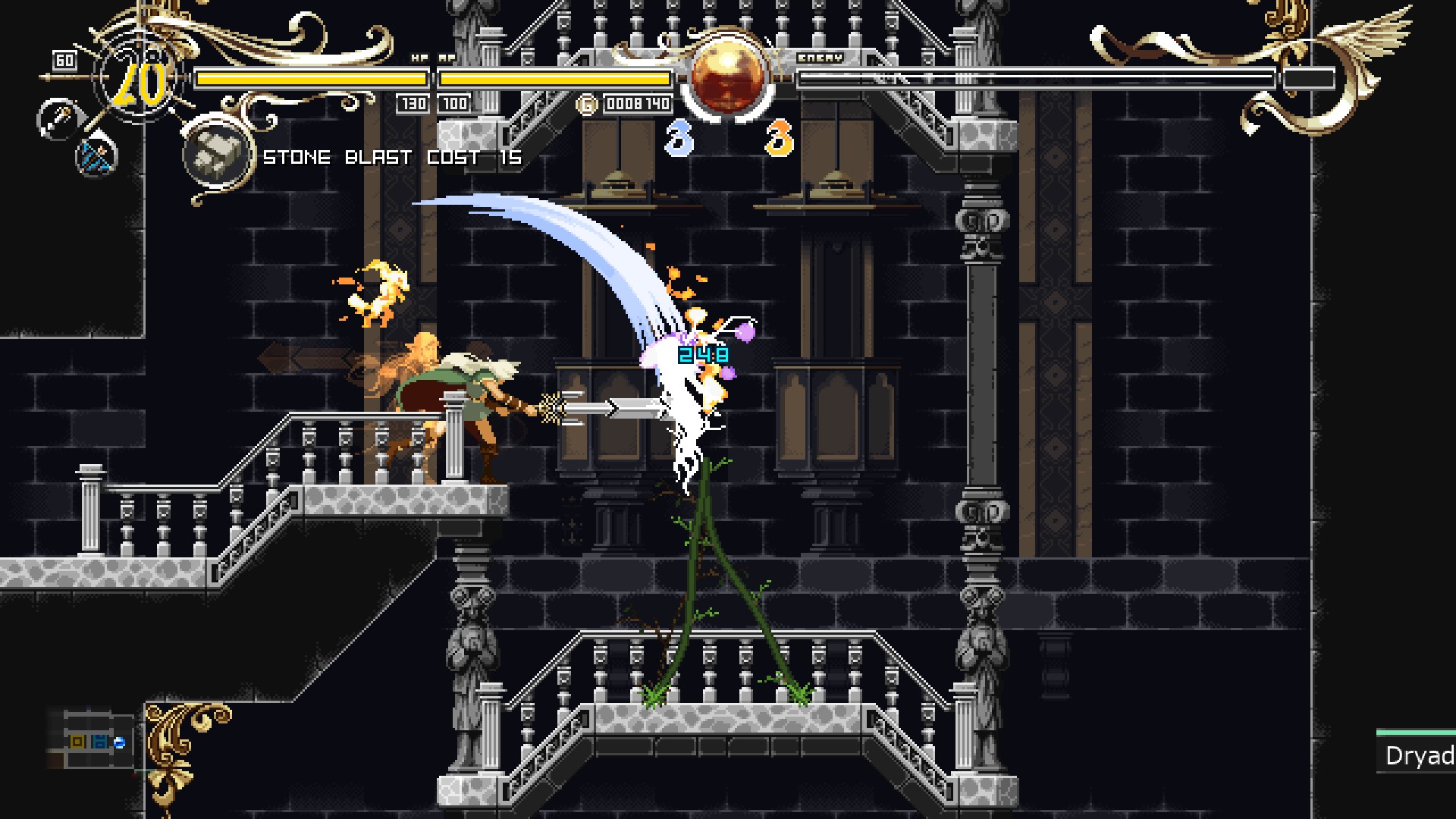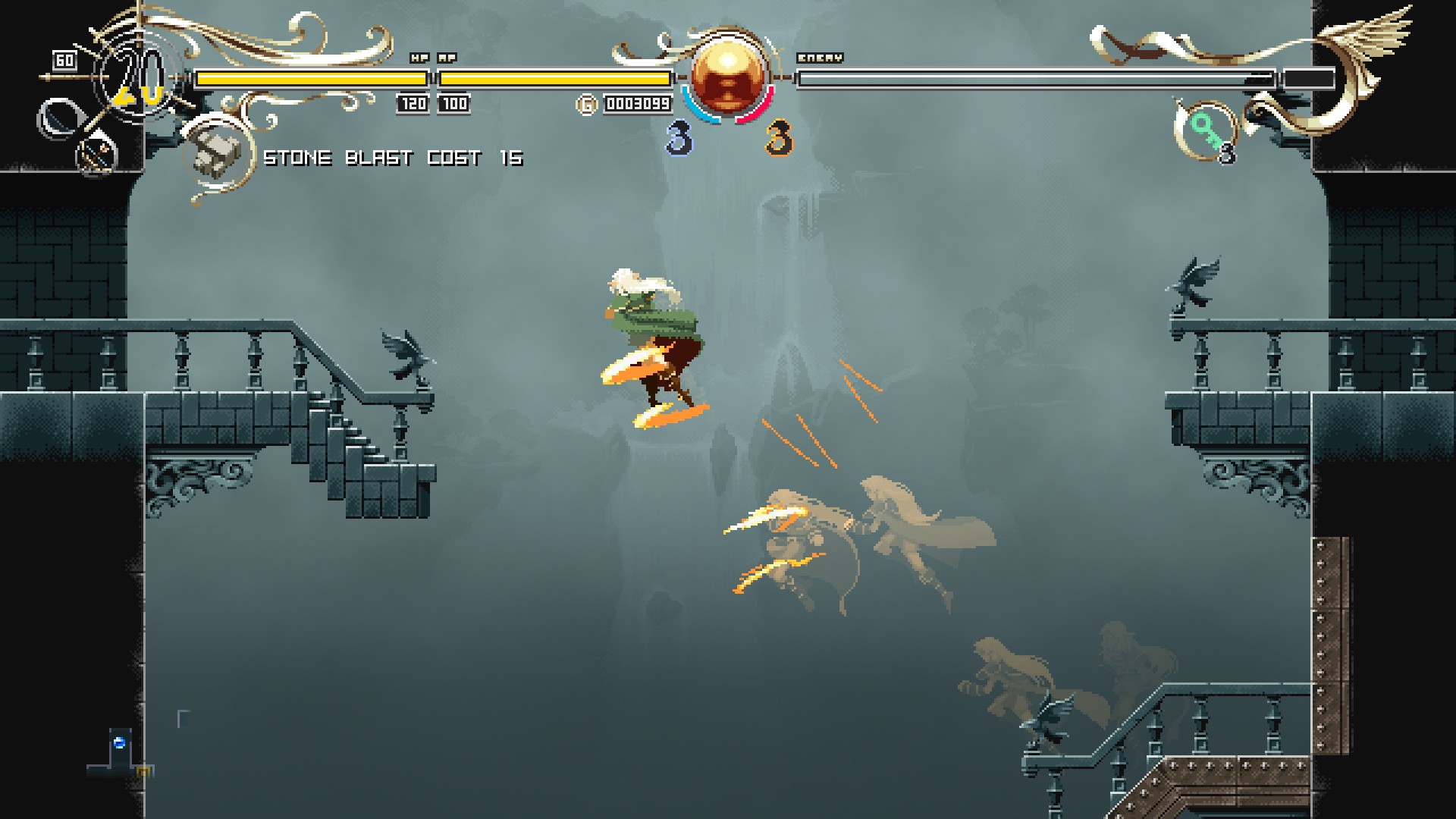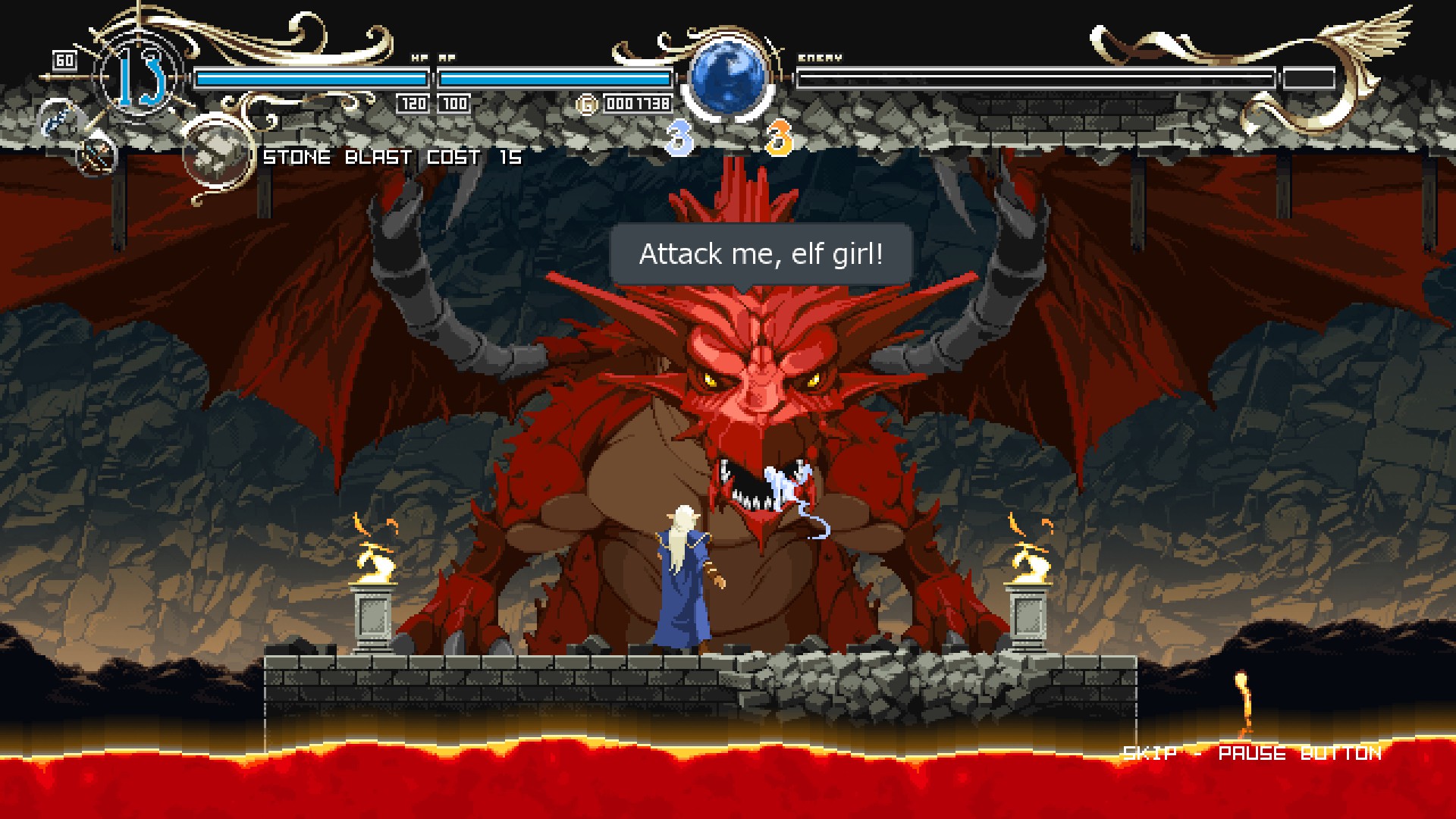Our Verdict
Deedlit in Wonder Labyrinth feels like the first half of a fun, if simple, metroidvania.
PC Gamer's got your back
What is it? A bite-sized, 2D pixel art metroidvania.
Expect to pay: $20/£15.49
Developer: Why so Serious?, Team Ladybug
Publisher: Why so Serious?, Playism
Reviewed on: Windows 10, AMD FX 8350 Eight-Core, Radeon RX 580, 24GB RAM
Multiplayer? No
Link: Steam
If you're unfamiliar with the D&D-adjacent Record of Lodoss War novels, tabletop RPG, and anime from the '80s and '90s, Deedlit in Wonder Labyrinth will remain mostly incomprehensible until the end. The story airdrops in characters such as Parm (Deedlit's lover), Pirotess (Deedlit's rival), and Ashram (a big bad evil guy), and working out their relationships is something like starting Wandavision at episode nine without ever having seen a Marvel movie. Later, Deedlit in Wonder Labyrinth mirrors Wandavision's exploration of grief, and that should make sense to anyone.
Non-fans don't need to worry too much about following the story, though. The metroidvania genre traditionally values exploring 2D dungeons over cohesive narrative, and Deedlit in Wonder Labyrinth is no exception. It checks all the familiar metroidvania boxes, though its shortness and lack of difficulty left me wanting.

A voice bellows "level three" when I reach the max level for a spirit, and green cubes fly across the screen with high-pitched chirps.
Deedlit is a high elf whose billowing cape, long hair, and quick back dash are purposefully modeled after Castlevania: Symphony of the Night's Alucard. She's capable of wielding a melee weapon and a bow, and can cast a few elemental spells. More importantly, she can harness the spirit of wind and the spirit of fire. With the tap of a button, I can switch between these two modes, or stances, dealing one damage type or the other with my basic weapon attacks, as well as becoming immune to that damage type.
Dealing damage with one spirit will fill the level of the other, up to level three, while getting hit lowers the level of the equipped mode. At level three, Deedlit regenerates health at a steady (if noisy) rate. The art style may scream Symphony of the Night, but the sound design is more reminiscent of early 16-bit games such as Altered Beast. A voice bellows "level three" when I reach the max level for a spirit, and green cubes fly across the screen with high-pitched chirps, restoring my health one hit point at a time.
Swapping between fire and wind is a surprisingly fun complication, and it's encouraged or required by most enemies, bosses, and platforming challenges. Every enemy has at least one elemental weakness, resistance, or immunity, which are clearly displayed with clever dice iconography on a scale from one to six. An early-game dragon boss primarily deals fire damage, but is immune to fire himself. I can switch to fire mode as a defensive maneuver when he blankets the floor in dragonbreath, or if I'm about to fall in lava, and then swap to wind mode when I see an opening to slice and dice. Mode-swapping is used outside of combat as well, with wind and fire barriers forcing me to swap while jumping or running. The spirit of wind also grants the ability to hover over spikes and enemies, which is useful throughout the game. The spirit of fire grants the ability to detonate barrels, but that skill is never used outside of the tutorial area, weirdly.
Exploiting enemy weaknesses by swapping modes, using elemental-powered bows, and unleashing screen-clearing spells remains enjoyable throughout the game's short run-time, though the enemies leave much to be desired. Metroidvania fans are used to creatively gothic enemies and creepy monstrosities, but Deedlit battles high fantasy creatures such as dark elves, minotaurs, goblins, and slightly enlarged crocodiles. A few late-game beasts, like the basilisk, are impressively large and powerful, but every enemy suffers from the same problem: they're shockingly sluggish. As a veteran of countless metroidvanias, Deedlit in Wonder Labyrinth is one of the easiest I've played, due in large part to enemy movement and response time. It's easy to lay into any enemy before they're able to get off a single attack. The light difficulty is further exacerbated by Deedlit's easy ability to regenerate health. Pumping a spirit to level three only takes a handful of strikes, and it's trivial to remain in place before moving on to regain all my hit points.
The exceptions are the boss fights, which feature a rewarding balance of attack rhythm memorization and on-the-fly elemental swapping to exploit weaknesses. Mid- and late-game bosses are mostly human-size opponents (who will be familiar to fans of the series) that can move and fight as quickly as Deedlit. A useful spell that summons a vine-shooting dryad proves invaluable against a particularly irksome boss who is weak against plants, while a rapid-fire, light-element bow works wonders against his even faster second form.

Spells, weapons, bows, and a select few additional power-ups are found by exploring the various paths and secrets of the dungeon—a staple of the genre. Wonder Labyrinth nails the vertical shafts and winding corridors that create the traditional Castlevania-like experience (minus the breakable chandeliers), but after exploring the map to 100 percent, I don't recall finding a single secret. I'm trained to search for false walls and secret paths in every room, but didn't find anything remotely hidden or devious in Wonder Labyrinth.
Most metroidvanias encourage backtracking by unlocking new abilities, but Wonder Labyrinth is far more linear, ushering me to each area one after another. Instead of acquiring new traversal powers, defeating the boss of each stage simply unlocks a new set of colored doors, which opens the next area (and perhaps a single door in a previous area I can now access). The only exceptions are acquiring a double and triple jump, but their critical applications are disappointingly limited.
Deedlit in Wonder Labyrinth is a brief but fun foray into a well-worn genre. The mode-swapping and elemental attacks are enjoyable, but the game is over just when it starts to reach a proper crescendo, with 100 percent of the map revealed (and presumably all the gear and spells) in under six hours. Not quit a full symphony, but a fun little ensemble.
Deedlit in Wonder Labyrinth feels like the first half of a fun, if simple, metroidvania.


